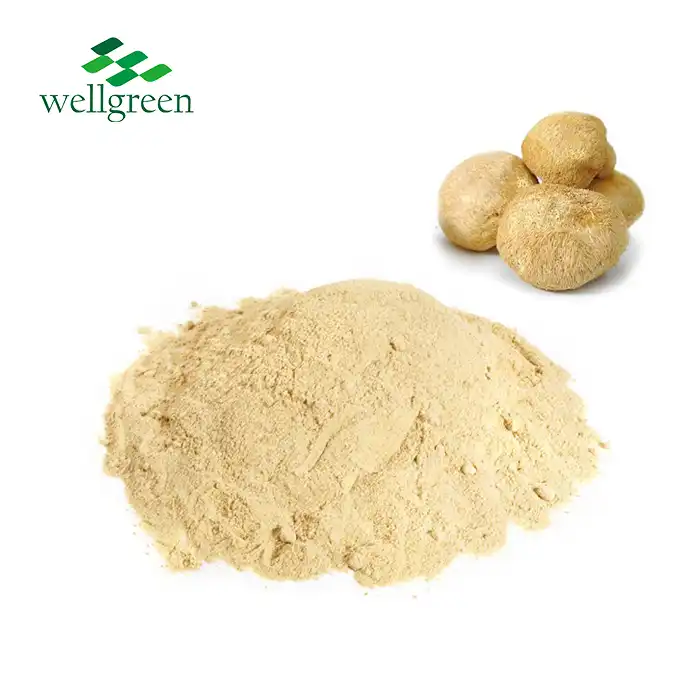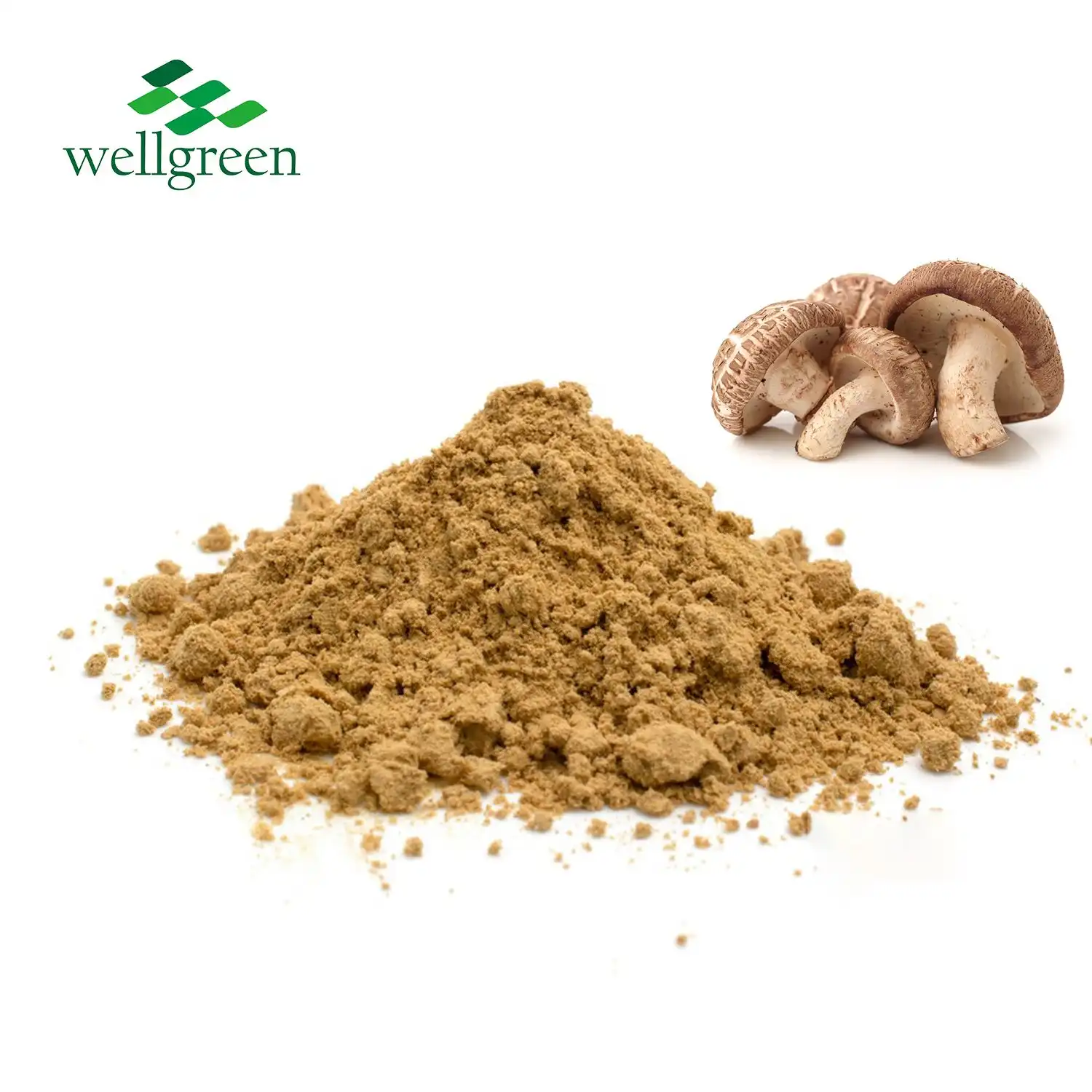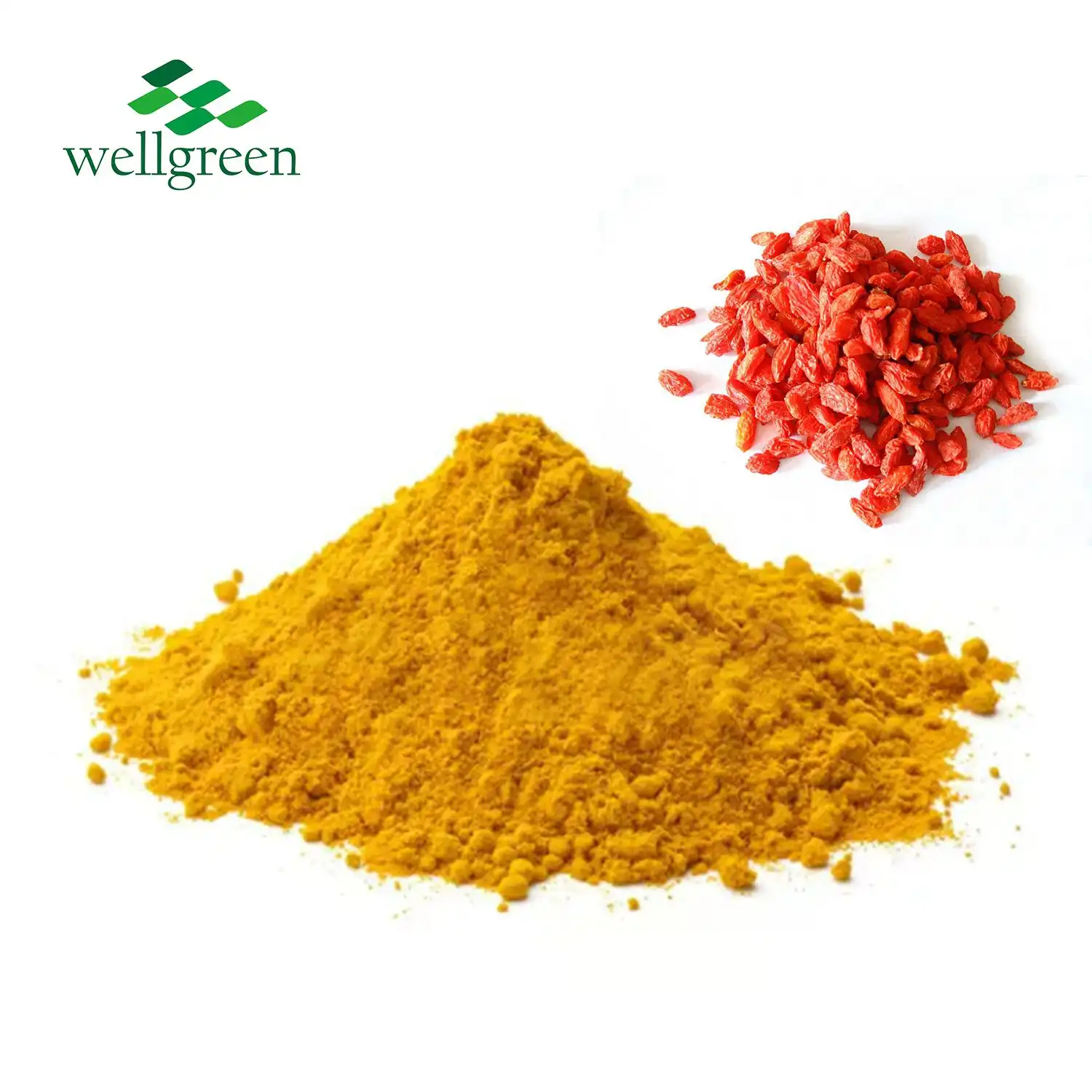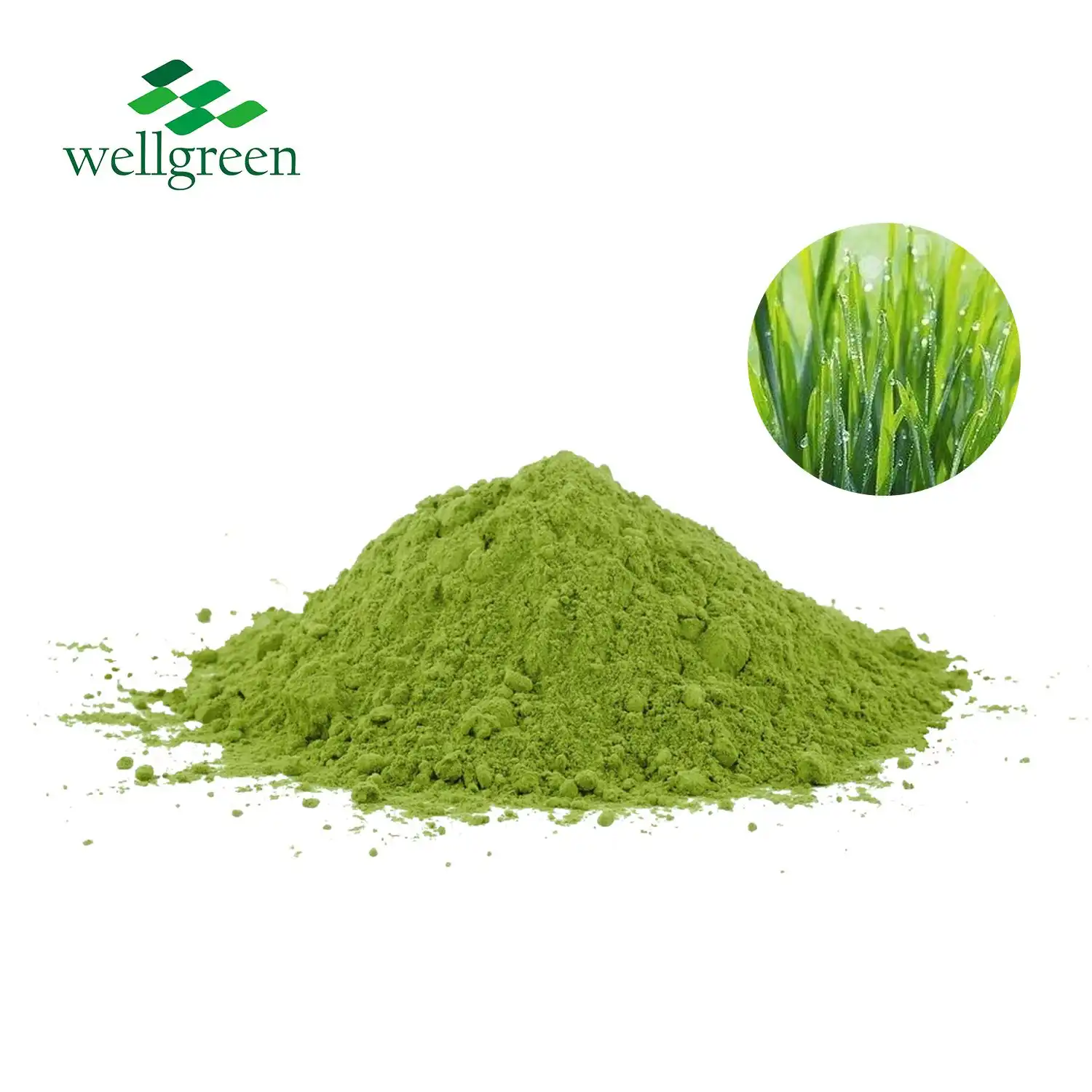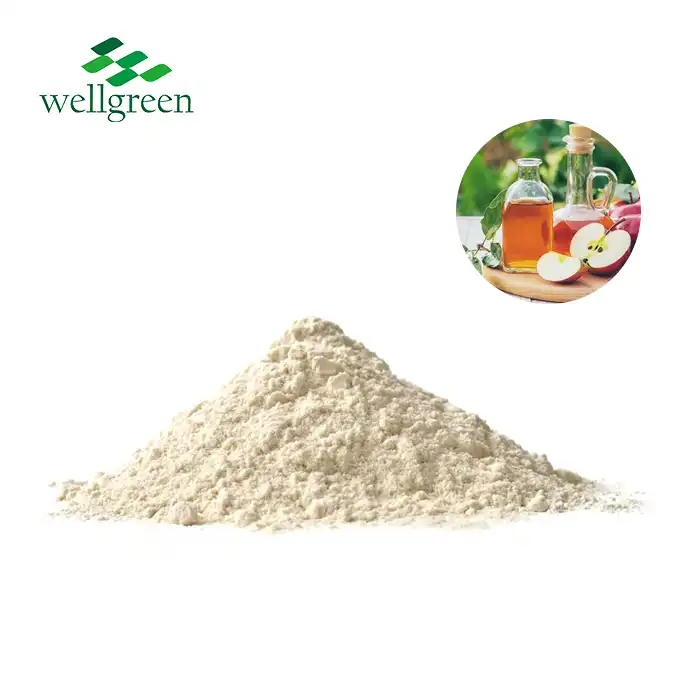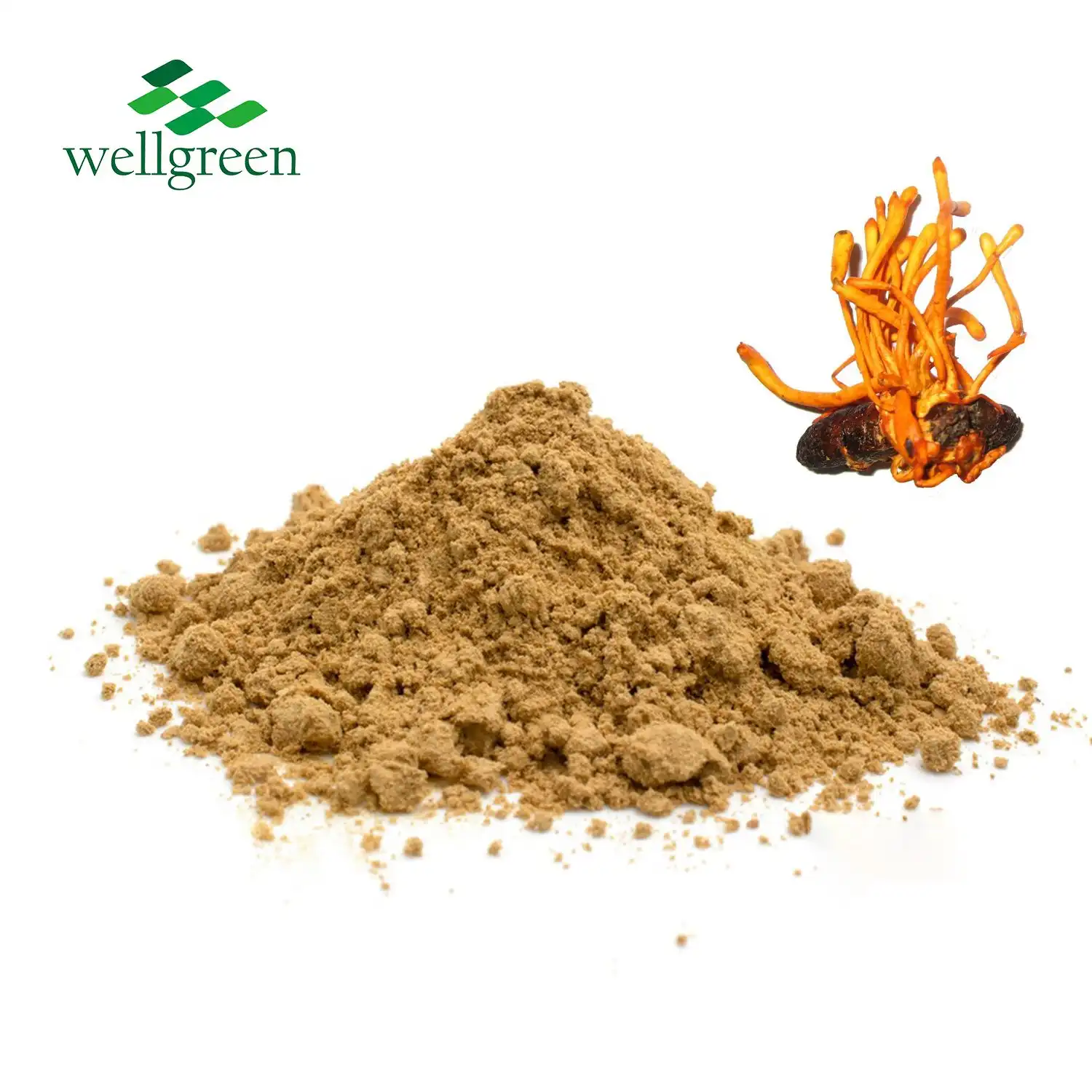Ginseng Extract Powder: Nature's Answer to Modern Stress?
2025-07-29 13:35:26
In our fast-paced, high-pressure world, the search for natural stress relief has led many to explore the potential of ginseng extract powder. This ancient herb, revered for centuries in traditional medicine, is gaining renewed attention as a possible antidote to modern stress. Ginseng root extract powder, derived from both Asian and American ginseng species, contains powerful compounds called ginsenosides that may help regulate the body's stress response. While not a magical cure-all, emerging research suggests ginseng extract powder could play a valuable role in supporting mental resilience and overall well-being in the face of daily stressors. Let's delve into the science behind ginseng's stress-fighting potential and explore how this natural remedy might offer a helping hand in our quest for balance.

How Does Ginseng Regulate the Body's Stress Response?
Adaptogens and the HPA Axis
Ginseng extract powder belongs to a class of substances known as adaptogens. These remarkable compounds help the body adapt to various forms of stress, both physical and mental. The key to ginseng's adaptogenic properties lies in its ability to modulate the hypothalamic-pituitary-adrenal (HPA) axis, our central stress response system. By gently influencing the HPA axis, ginseng may help prevent the over-activation that often occurs during chronic stress, leading to a more balanced and resilient stress response.
Neurotransmitter Modulation
Beyond its effects on the HPA axis, ginseng root extract powder has shown promise in regulating key neurotransmitters involved in mood and stress. Studies suggest that ginsenosides may influence the production and activity of serotonin, dopamine, and norepinephrine - crucial chemical messengers that play vital roles in our emotional well-being and stress coping mechanisms. By supporting a healthy neurotransmitter balance, ginseng extract powder could potentially contribute to improved mood stability and stress resilience.
Antioxidant Protection
Chronic stress takes a toll on our bodies at the cellular level, often leading to increased oxidative stress and inflammation. Ginseng extract powder boasts potent antioxidant properties that may help combat this oxidative damage. By neutralizing harmful free radicals and supporting our body's natural antioxidant defenses, ginseng could offer a layer of protection against the physiological wear and tear associated with long-term stress exposure.
Cortisol Balance and Mental Resilience
Taming the Stress Hormone
Cortisol, often dubbed the "stress hormone," plays a crucial role in our body's fight-or-flight response. While cortisol is essential for survival, chronically elevated levels can wreak havoc on our health and well-being. Ginseng extract powder has shown promising potential in helping to regulate cortisol production and secretion. By promoting a more balanced cortisol rhythm, ginseng may help mitigate some of the negative effects of long-term stress, such as fatigue, mood swings, and cognitive difficulties.
Cognitive Function and Focus
One of the most frustrating aspects of chronic stress is its impact on our mental clarity and focus. Ginseng root extract powder has long been associated with improved cognitive function, and modern research is beginning to uncover the mechanisms behind this traditional use. Studies suggest that ginseng may enhance memory, attention, and mental processing speed - all of which can suffer under the weight of prolonged stress. By supporting healthy brain function, ginseng extract powder could potentially help us maintain mental sharpness even in the face of daily pressures.
Emotional Resilience and Mood Support
The toll of chronic stress often manifests in our emotional well-being, leading to feelings of anxiety, irritability, or low mood. Ginseng extract powder's influence on neurotransmitter balance and the HPA axis may contribute to improved emotional resilience. Some studies have explored ginseng's potential as a complementary approach for managing mild to moderate depression and anxiety symptoms. While more research is needed, these preliminary findings suggest that ginseng could play a role in supporting overall emotional health and stress coping abilities.

Therapeutic Potential in Stress-Related Health Conditions
Fatigue and Energy Levels
Chronic stress often goes hand in hand with persistent fatigue, creating a vicious cycle that can be difficult to break. Ginseng extract powder has a long history of use as an energy tonic, and modern research is beginning to support this traditional application. Studies have explored ginseng's potential in combating both physical and mental fatigue, with some promising results. By supporting healthy energy metabolism and potentially improving sleep quality, ginseng root extract powder could offer a natural boost for those struggling with stress-related exhaustion.
Immune System Support
The intricate connection between stress and immune function is well-established, with chronic stress often leading to suppressed immunity. Ginseng extract powder has demonstrated immunomodulatory properties, meaning it may help regulate and support the immune system. This could be particularly beneficial for individuals experiencing stress-related immune suppression. By bolstering the body's natural defenses, ginseng may help maintain overall health and resilience in the face of ongoing stressors.
Cardiovascular Health
The negative impact of chronic stress on heart health is a growing concern in our modern world. Ginseng extract powder has shown potential in supporting various aspects of cardiovascular function. Studies have explored its effects on blood pressure regulation, cholesterol levels, and overall heart health. While more research is needed to fully understand ginseng's cardioprotective properties, these early findings suggest it could play a role in mitigating some of the stress-related risks to heart health.
Conclusion
Ginseng extract powder offers a promising natural approach to managing the effects of modern stress. While not a substitute for a healthy lifestyle or professional medical advice, the adaptogenic properties of ginseng root extract powder may provide valuable support in our quest for balance and resilience. As research continues to uncover the mechanisms behind ginseng's stress-modulating effects, this ancient herb may find an increasingly important place in our modern stress management toolbox. Always consult with a healthcare professional before adding any new supplement to your routine, especially if you have existing health conditions or are taking medications.
Contact Us
At Xi'an wellgreen, we're committed to providing high-quality, rigorously tested ginseng extract powder to support your health and wellness journey. Contact us today at wgt@allwellcn.com to learn more about our products and how we can help you harness the power of nature's stress-fighting herb.
References
1. Kim, J. H., et al. (2018). "Red ginseng and vitamin C increase immune cell activity and decrease lung inflammation induced by influenza A virus/H1N1 infection." Journal of Pharmacy and Pharmacology, 70(9), 1184-1199.
2. Shin, B. C., et al. (2013). "Effectiveness of ginseng for lowering blood glucose in patients with type 2 diabetes: a systematic review and meta-analysis." Journal of Ethnopharmacology, 144(3), 568-581.
3. Lee, S., et al. (2016). "Effects of Korean Red Ginseng on Cardiovascular and Metabolic Parameters in Patients with Metabolic Syndrome: A Double-Blind Randomized Controlled Trial." Journal of Ginseng Research, 40(2), 137-146.
4. Scholey, A., et al. (2010). "Effects of American ginseng (Panax quinquefolius) on neurocognitive function: an acute, randomised, double-blind, placebo-controlled, crossover study." Psychopharmacology, 212(3), 345-356.
5. Gao, Y., et al. (2013). "Ginsenosides, a constituent of ginseng, inhibits the development of atherosclerosis in rabbits." Journal of Cardiovascular Pharmacology, 62(3), 314-321.
6. Bach, H. V., et al. (2016). "Efficacy of Ginseng Supplements on Fatigue and Physical Performance: A Meta-analysis." Journal of Korean Medical Science, 31(12), 1879-1886.

